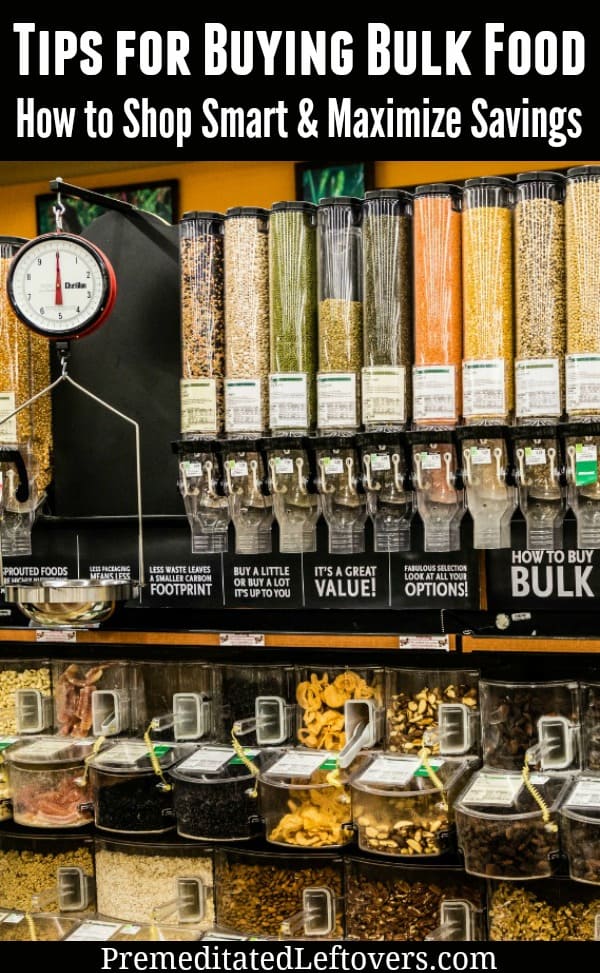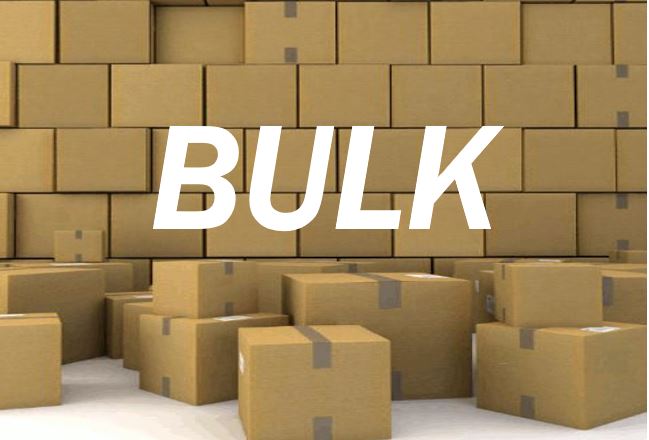Unlocking the Secrets of Bulk Buying for Resale
Bulk buying and selling can be a lucrative venture for those who know how to navigate the market. By purchasing products in large quantities at discounted prices, resellers can capitalize on the demand for these items and sell them for a profit. However, making informed purchasing decisions is crucial to success in this field. With the right strategies and knowledge, resellers can unlock the secrets of bulk buying and selling, and reap the rewards of this profitable business model.
One of the key benefits of bulk buying is the potential for significant profits. By buying in bulk, resellers can take advantage of lower prices per unit, which can result in higher profit margins when the products are sold. Additionally, bulk buying allows resellers to stock up on popular items, reducing the need for frequent reordering and minimizing the risk of stockouts.
However, bulk buying also requires careful planning and research. Resellers must stay up-to-date on market trends and consumer demand to ensure that they are purchasing products that will sell quickly and for a profit. This involves monitoring sales data, tracking consumer behavior, and analyzing market trends to identify opportunities for growth.
In this article, we will provide guidance on the best things to bulk buy and sell, including tips on how to identify in-demand products, negotiate with suppliers, and manage inventory effectively. Whether you are a seasoned reseller or just starting out, this article will provide you with the knowledge and strategies you need to succeed in the world of bulk buying and selling.
How to Identify In-Demand Products for Bulk Purchase
Identifying the right products to buy in bulk is crucial to success in the resale market. To maximize profits, resellers need to stay on top of market trends and consumer demand. This involves researching popular products and trends using various tools and resources.
One effective way to identify in-demand products is to use online marketplaces like Amazon and eBay. These platforms provide valuable insights into consumer behavior and market trends. By analyzing sales data and customer reviews, resellers can identify products that are consistently in demand and have a high potential for resale.
Social media is another valuable resource for identifying in-demand products. Platforms like Facebook, Instagram, and Twitter provide a wealth of information on consumer trends and preferences. By monitoring social media conversations and hashtags, resellers can identify products that are generating buzz and have a high potential for resale.
Additionally, resellers can use tools like Google Trends and Keyword Planner to identify popular products and trends. These tools provide valuable insights into consumer behavior and market trends, allowing resellers to make informed purchasing decisions.
When identifying in-demand products, it’s also important to consider factors like competition and pricing. Resellers need to ensure that they can purchase products at a low enough cost to make a profit, and that there is sufficient demand to drive sales. By carefully researching products and trends, resellers can make informed purchasing decisions and maximize their profits.
Top Products to Buy in Bulk and Resell for a Profit
When it comes to buying in bulk and reselling for a profit, it’s essential to focus on products that are consistently in demand and can be purchased at a low cost. Some of the best things to bulk buy and sell include electronics, household items, and personal care products.
Electronics are always in high demand, and buying in bulk can help resellers capitalize on this trend. Popular electronics to buy in bulk include iPhones, laptops, tablets, and gaming consoles. These products can be resold online through platforms like Amazon, eBay, and Craigslist, or in-person at local electronics stores.
Household items are another profitable category for bulk buying and reselling. Products like kitchen appliances, bedding, and home decor are always in demand, and can be purchased in bulk at discounted prices. Resellers can sell these products online through platforms like Amazon and eBay, or in-person at local garage sales and flea markets.
Personal care products are also a lucrative category for bulk buying and reselling. Products like skincare, haircare, and fragrances are always in demand, and can be purchased in bulk at discounted prices. Resellers can sell these products online through platforms like Amazon and eBay, or in-person at local beauty supply stores.
Designer clothing and accessories are also popular products to buy in bulk and resell for a profit. Luxury brands like Gucci, Louis Vuitton, and Chanel are always in high demand, and can be purchased in bulk at discounted prices. Resellers can sell these products online through platforms like eBay and Poshmark, or in-person at local consignment stores.
When buying in bulk, it’s essential to research the market demand and competition to ensure that the products will sell quickly and for a profit. Resellers should also consider the cost of shipping and storage when calculating their profit margins.
The Benefits of Buying in Bulk from Wholesale Suppliers
When it comes to buying in bulk, purchasing from wholesale suppliers can be a game-changer for resellers. Wholesale suppliers offer a wide range of products at discounted prices, making it possible for resellers to purchase in bulk and resell for a profit.
One of the main benefits of buying in bulk from wholesale suppliers is the lower cost per unit. By purchasing in large quantities, resellers can negotiate better prices with suppliers, which can result in higher profit margins when the products are resold. Additionally, wholesale suppliers often offer faster shipping and more flexible payment terms, making it easier for resellers to manage their inventory and cash flow.
Another advantage of buying in bulk from wholesale suppliers is access to a wider range of products. Wholesale suppliers typically carry a large selection of products, including hard-to-find items and specialty goods. This makes it possible for resellers to offer a diverse range of products to their customers, which can help to attract and retain business.
To find reputable wholesale suppliers, resellers can start by researching online directories and trade publications. They can also attend industry events and conferences to network with suppliers and learn about new products and trends. When selecting a supplier, resellers should consider factors such as product quality, pricing, and customer service.
Negotiating the best prices with wholesale suppliers is also crucial for resellers. This can involve researching the market to determine fair prices, comparing prices among different suppliers, and negotiating with suppliers to secure the best deals. By taking the time to research and negotiate, resellers can ensure that they are getting the best possible prices for their bulk purchases.
Overall, buying in bulk from wholesale suppliers can be a smart move for resellers who want to maximize their profits and stay competitive in the market. By taking advantage of lower costs, faster shipping, and access to a wider range of products, resellers can build a successful and sustainable business.
Strategies for Selling Bulk Purchases Online and Offline
Once you have purchased products in bulk, it’s essential to have a solid plan for selling them. There are various channels for selling bulk purchases, including online marketplaces, social media, and local flea markets. In this section, we will discuss the best strategies for selling bulk purchases online and offline.
Online marketplaces like Amazon and eBay are excellent platforms for selling bulk purchases. These platforms have a large customer base, and you can create listings for your products quickly and easily. To create effective listings, make sure to include high-quality product images, detailed product descriptions, and competitive pricing.
Social media is another effective channel for selling bulk purchases. Platforms like Facebook, Instagram, and Twitter have a large user base, and you can create posts and ads to promote your products. To attract buyers, make sure to use relevant hashtags, post high-quality product images, and engage with your followers.
Local flea markets and garage sales are also great places to sell bulk purchases. These events attract a large number of customers, and you can set up a stall or table to display your products. To attract buyers, make sure to price your products competitively, display them attractively, and engage with potential customers.
When selling bulk purchases, it’s essential to set competitive prices. Research your competition, and make sure to price your products lower than theirs. You can also offer discounts and promotions to attract buyers and drive sales.
Attracting buyers is also crucial when selling bulk purchases. To attract buyers, make sure to create effective listings, use relevant keywords, and engage with potential customers. You can also offer excellent customer service, respond to customer inquiries, and resolve any issues promptly.
Finally, make sure to keep track of your sales and profits. Use tools like spreadsheets or accounting software to track your sales, profits, and expenses. This will help you to identify areas for improvement, optimize your sales strategy, and increase your profits.
Managing Inventory and Minimizing Risks in Bulk Buying
Effective inventory management is crucial to the success of any bulk buying and selling business. When purchasing products in bulk, it’s essential to have a solid plan in place for storing, tracking, and managing inventory to minimize risks and maximize profits. Here are some strategies for managing inventory and minimizing risks in bulk buying:
1. Store products properly: Ensure that products are stored in a clean, dry, and secure location to prevent damage and loss. Consider investing in shelving units, bins, and containers to keep products organized and easy to access.
2. Track inventory levels: Use a inventory management system to track the quantity of products in stock, monitor stock levels, and receive alerts when products need to be reordered. This will help prevent overstocking and understocking.
3. Label and categorize products: Label and categorize products to make it easy to identify and locate them. This will also help prevent mistakes when shipping products to customers.
4. Monitor product condition: Regularly inspect products for damage, defects, or obsolescence. Remove any products that are no longer saleable to prevent losses.
5. Keep records: Keep accurate records of inventory levels, product condition, and sales data. This will help identify trends, optimize inventory levels, and make informed purchasing decisions.
By implementing these strategies, bulk buyers and sellers can minimize risks, reduce losses, and maximize profits. Remember, effective inventory management is key to success in the bulk buying and selling business. By staying organized, monitoring inventory levels, and adapting to changes in the market, businesses can stay ahead of the competition and achieve long-term success.
When it comes to the best things to bulk buy and sell, it’s essential to consider the potential risks and challenges associated with inventory management. By understanding these risks and implementing effective strategies, businesses can minimize losses and maximize profits. Whether you’re buying in bulk to resell online or offline, effective inventory management is crucial to success.
Scaling Your Bulk Buying and Selling Business
As a bulk buyer and seller, scaling your business is crucial to achieving long-term success and maximizing profits. Scaling involves increasing the size of your operations, investing in additional inventory, and expanding your product lines to meet growing demand. Here are some strategies for scaling your bulk buying and selling business:
1. Invest in additional inventory: As your business grows, it’s essential to invest in additional inventory to meet increasing demand. Consider purchasing products in larger quantities to take advantage of lower costs and faster shipping.
2. Expand product lines: Diversifying your product lines can help you reach new customers and increase sales. Consider adding new products that complement your existing offerings and are in high demand.
3. Hire staff: As your business grows, it may be necessary to hire staff to help with tasks such as inventory management, customer service, and shipping. Consider hiring experienced staff who can help you scale your business efficiently.
4. Invest in technology: Technology can help you streamline your operations, manage inventory, and improve customer service. Consider investing in inventory management software, shipping software, and customer relationship management (CRM) software.
5. Continuous market research: Staying up-to-date with market trends and consumer demand is crucial to scaling your business. Continuously research the market to identify new opportunities, trends, and products to add to your offerings.
6. Adapt to changing trends: The market is constantly changing, and it’s essential to adapt to these changes to stay ahead of the competition. Consider adjusting your product lines, pricing, and marketing strategies to stay competitive.
By implementing these strategies, bulk buyers and sellers can scale their business efficiently and effectively. Remember, scaling a business requires careful planning, execution, and adaptation to changing market conditions. By staying focused on providing value to customers and continuously improving operations, businesses can achieve long-term success and maximize profits.
When it comes to the best things to bulk buy and sell, it’s essential to consider the potential for scaling your business. By identifying products with high demand and low competition, businesses can create a solid foundation for growth and expansion. Whether you’re buying in bulk to resell online or offline, scaling your business requires careful planning, execution, and adaptation to changing market conditions.
Avoiding Common Pitfalls in Bulk Buying and Selling
When buying in bulk and selling products, it’s essential to be aware of common pitfalls that can lead to financial losses and damage to your reputation. By understanding these pitfalls, you can take steps to avoid them and ensure the success of your bulk buying and selling business. Here are some common mistakes to avoid:
1. Overstocking: Buying too much inventory can lead to overstocking, which can result in significant financial losses. Make sure to research market demand and competition before making a bulk purchase.
2. Underpricing: Selling products at too low a price can result in minimal profits or even losses. Research the market to determine the optimal price for your products.
3. Failing to research suppliers: Not researching suppliers can lead to purchasing low-quality products or dealing with unreliable suppliers. Make sure to research suppliers thoroughly before making a purchase.
4. Not having a solid inventory management plan: Failing to manage inventory effectively can lead to losses due to damage, loss, or obsolescence. Develop a solid inventory management plan to ensure the success of your business.
5. Not adapting to changing market trends: Failing to adapt to changing market trends can result in selling products that are no longer in demand. Stay up-to-date with market trends and adjust your product offerings accordingly.
6. Not providing excellent customer service: Providing poor customer service can damage your reputation and lead to negative reviews. Make sure to provide excellent customer service to build a loyal customer base.
By avoiding these common pitfalls, bulk buyers and sellers can ensure the success of their business and maximize profits. Remember, buying in bulk and selling products requires careful planning, research, and execution. By staying vigilant and adapting to changes in the market, businesses can achieve long-term success and become a leader in the industry.
When it comes to the best things to bulk buy and sell, it’s essential to be aware of the potential pitfalls and take steps to avoid them. By understanding the common mistakes to avoid, businesses can make informed purchasing decisions and develop a solid strategy for success. Whether you’re buying in bulk to resell online or offline, avoiding common pitfalls is crucial to achieving long-term success and maximizing profits.







